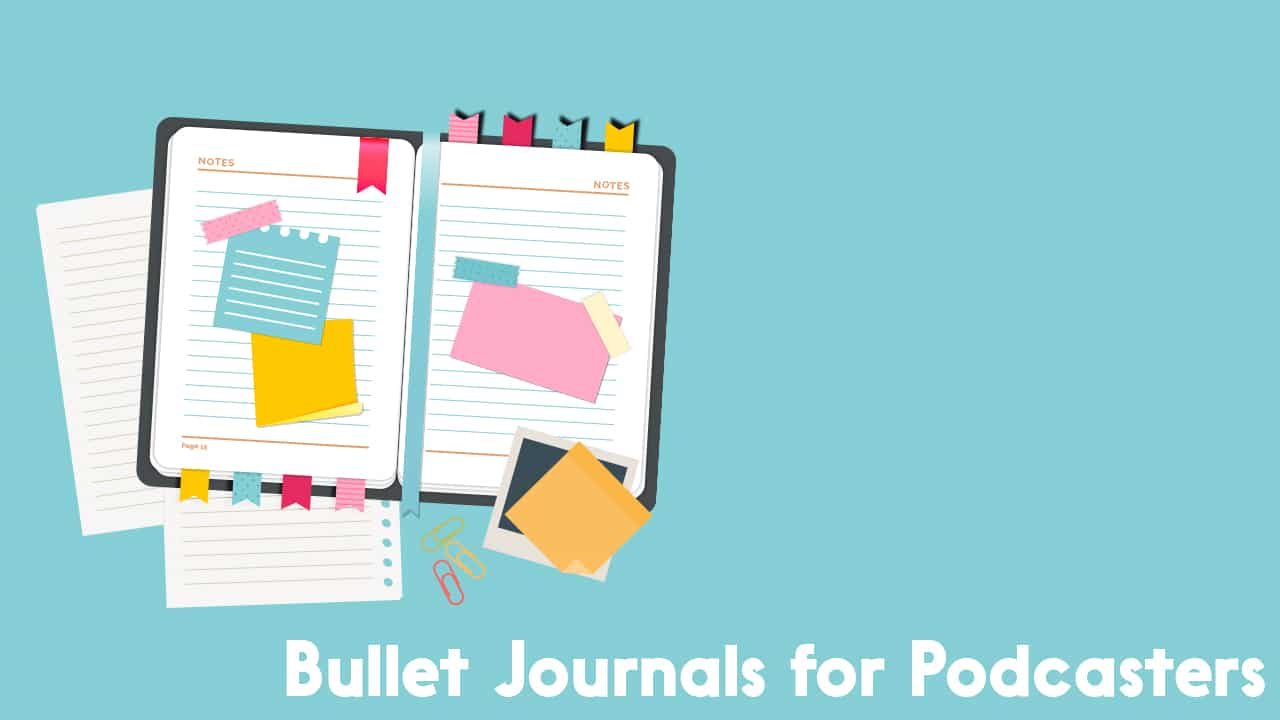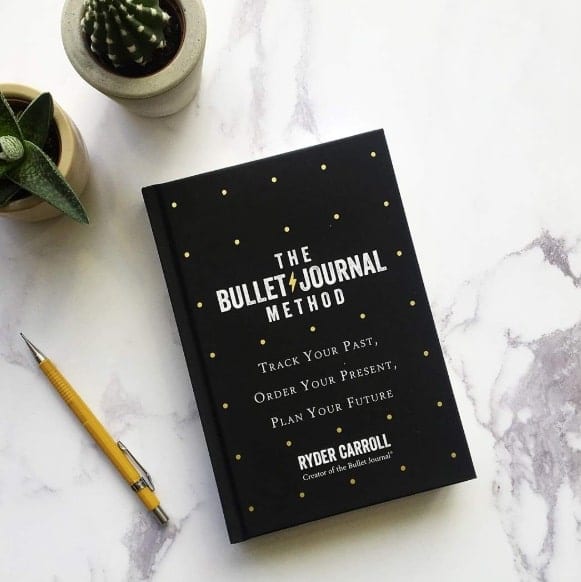Bullet Journals For Podcasters | Organize, Prioritize, Connect

When you’re making a podcast, it’s easy to get stuck in electronic media. Apps, web-based tools, and so on are good, but can lead to distraction.
For idea generation, planning, and breaking through the “stuck” feeling, there’s nothing like keeping a journal, on paper, with a pen or pencil. Journals have been the sanctuary of great thinkers, whether in the sciences, arts, theology or leadership, for centuries. As much as computers help progress, an analog solution should be in your podcaster tool kit. Bullet journals can be a great way for you to plan projects, get inspired, and stay focused.
Bullet journals can help you organize, prioritize, and connect to your electronic tools. But why paper? Aren’t these online tools all “better?” I’ve sung the praises of analog media before. Think about how your brain works while writing on paper, longhand.
Journals give you the freedom to scribble, and then extract what’s most important. Freedom to make mistakes removes fear of failure. Studies suggest that writing by hand improves memory retention, enhances neuroplasticity, and makes you smarter than typing alone.
Let’s look at some journal-keeping methods which can help your planning process and stimulate you to improve your podcast content.

Ryder Carroll’s Bullet Journal Method
As a means of coping with his own ADHD, Ryder Carroll invented and trademarked the term, “Bullet Journal.” Also called “BuJo” by devotees, this method is hugely popular with business project managers and Pinterest influencers.
Carroll’s method involves taking a blank journal and marking up pages two at a time, to make nesting processes and calendar-based systems. He starts with a handwritten index on the first two facing pages. The next two pages are his “future log,” where he plans future tasks. The next pages are monthly logs. He flips back and forth between monthly logs and the index, so that he knows what pages have different tasks. Each line he enters has a different symbol, to show whether this is a task, an event, or an idea.
The most critical part of this process is the rewriting. It may seem wasteful. The action of migrating these tasks from one page to another is like sifting sand to find sea glass. This helps you weed out the things which are not important. If you’ve rewritten something, either you feel it’s really important, or you change your mind and simplify. If a bullet point doesn’t get finished, it’s okay, you just migrate it to a new page.
Lynda Barry’s Quick Diary Format
Chiefly known as a cartoonist, Lynda Barry recently received a MacArthur “Genius” grant for her work on how creating art by hand stimulates brain activity. Her book, Syllabus, explains a daily journaling method that stimulates creativity and helps refine ideas.
Her method involves two short lists, two ideas, and a timer. You divide each page (daily) into four parts. You set a timer for five minutes, to avoid overthinking. In the first three sections, you write lists of things you did, saw, and something that you heard. In the fourth section, you draw a picture of something you saw, in less than 30 seconds.
She’s not asking you to draw anything fancy. Sketching a doodle of the first thing that pops into your head eliminates fear and encourages risk, distilling your thought process into one chunk of information. The timed aspect of this makes you not second-guess your own thoughts. It eliminates, “I can’t do that.”
Julia Cameron’s Morning Pages
Julia Cameron’s book The Artist’s Way has a huge following among screenwriters, artists, and all kinds of creative folk. Cameron’s method isn’t as much of a bulleted system as it is a catharsis. The idea is simply that you write three pages, without stopping, first thing in the morning.
The habit of writing three pages every morning, before anything else happens, stimulates your brain and refines your ideas. This builds confidence, and its meditative quality helps unlock ideas that you might not otherwise be relaxed enough to find.
What can a bullet journal be like for podcasters?
Ryder Carroll’s Bullet Journal method definitely is an excellent way to plan tasks and ideas. The nested list process is good for content stacking. Once you’ve clarified the most important tasks, events and ideas, they can be easily typed into a tool like Trello or Notion to make shortcuts.
Adding a daily method such as Lynda Barry’s or Julia Cameron’s would help with cooking up new ideas and spurring motivation. The beauty of these last two methods is that they help you generate what Austin Kleon calls a “swipe file.” In his book, Steal Like An Artist, he says, “Need a little inspiration? Open up the swipe file.”
It’s not just for inspiration and long range planning. You can include a section of preferences for mic settings, things you’ve learned in editing processes, and so on.
It’s important to get a notebook that’s good enough to be durable, but not so fancy that you can’t bear to mark it up. The BuJo method, over six months, would require at least 192 pages. Add Barry’s or Cameron’s methods, and your journal would balloon to significantly more, pretty fast. An A6 refillable binder is small enough to fit in a purse or commuter day bag. You can add or remove pages as time goes by.
What matters most is that you
- write in the journal consistently
- act on the tasks and events you put in the journal
- fit the journal together with other podcasting tools
- use it to propel you to work on your podcast
- if it’s not a launch pad, don’t use it.
You’re showing up for your own work. Don’t spend so much time on it that you’re not podcasting.
People have been keeping journals and making lists in notebooks for as long as there have been notebooks. We can all benefit from careful thinking and planning to make better podcasts. If you want help bringing your podcast to life, why not join us in The Podcast Academy? The courses, videos, downloadable resources, and a community of experts and peers can help you bring your unique story to life.
